2 Sorted list array implementation This sorted list ADT disc
2. (Sorted list: array implementation) This sorted list ADT discussed in class should be extended by the addition of two new methods:
//Interface: ArrayListADT
//works for int
public interface ArrayListADT {
public boolean isEmpty(); //Method to determine whether the list is empty.
public boolean isFull(); //Method to determine whether the list is full.
public int listSize(); //Method to return the number of elements in the list.
public int maxListSize(); //Method to return the maximum size of the list.
public void print(); //Method to output the elements of the list.
public boolean isItemAtEqual(int location, int item); //Method to determine whether item is the same as the item in the list at location.
public void insertAt(int location, int insertItem); //Method to insert insertItem in the list at the position
public void insertEnd(int insertItem); //Method to insert insertItem at the end of the list.
public void removeAt(int location); //Method to remove the item from the list at location.
public int retrieveAt(int location); //Method to retrieve the element from the list at location.
public void replaceAt(int location, int repItem); //Method to replace the element in the list at location with repItem.
public void clearList(); //Method to remove all the elements from the list.
public int search(int searchItem); //Method to determine whether searchItem is in the list.
public void remove(int removeItem); //Method to remove an item from the list.
}
//Class: ArrayListClass implements
//Interface: ArrayListADT
public abstract class ArrayListClass implements ArrayListADT {
protected int length; //to store the length of the list
protected int maxSize; //to store the maximum size of the list
protected int[] list; //array to hold the list elements
//Default constructor
public ArrayListClass() {
maxSize = 100;
length = 0;
list = new int[maxSize];
}
//Alternate Constructor
public ArrayListClass(int size) {
if(size <= 0) {
System.err.println(\"The array size must be positive. Creating an array of size 100.\");
maxSize = 100;
}
else
maxSize = size;
length = 0;
list = new int[maxSize];
}
public boolean isEmpty() {
return (length == 0);
}
public boolean isFull() {
return (length == maxSize);
}
public int listSize() {
return length;
}
public int maxListSize() {
return maxSize;
}
public void print() {
for (int i = 0; i < length; i++)
System.out.print(list[i] + \" \");
System.out.println();
}
public boolean isItemAtEqual(int location, int item) {
if (location < 0 || location >= length) {
System.err.println(\"The location of the item to be compared is out of range.\");
return false;
}
return list[location]== item;
}
public void clearList() {
for (int i = 0; i < length; i++)
list[i] = 0;
length = 0;
System.gc(); //invoke the Java garbage collector
}
public void removeAt(int location) {
if (location < 0 || location >= length)
System.err.println(\"The location of the item to be removed is out of range.\");
else {
for(int i = location; i < length - 1; i++)
list[i] = list[i + 1];
length--;
}
}
public int retrieveAt(int location) {
if (location < 0 || location >= length) {
System.err.println(\"The location of the item to be retrieved is out of range.\");
return 0;
}
else
return list[location];
}
public abstract void insertAt(int location, int insertItem);
public abstract void insertEnd(int insertItem);
public abstract void replaceAt(int location, int repItem);
public abstract int search(int searchItem);
public abstract void remove(int removeItem);
}
//Class: OrderedArrayList extends
//Super class: ArrayListClass
public class OrderedArrayList extends ArrayListClass{
public OrderedArrayList() {
super();
}
public OrderedArrayList(int size) {
super(size);
}
//implementation for abstract methods defined in ArrayListClass
//ordered list --> binary search
public int search(int item) {
int first = 0;
int last = length - 1;
int middle = -1;
while (first <= last) {
middle = (first + last) / 2;
if (list[middle] == item)
return middle;
else
if (list[middle] > item)
last = middle - 1;
else
first = middle + 1;
}
return -1;
}
public void insert(int item) {
int loc;
boolean found = false;
if (length == 0) //list is empty
list[length++] = item; //insert item and increment length
else if (length == maxSize) //list is full
System.err.println(\"Cannot insert in a full list.\");
else {
for (loc = 0; loc < length; loc++) {
if (list[loc] >= item) {
found = true;
break;
}
}
//starting at the end, shift right
for (int i = length; i > loc; i--)
list[i] = list[i - 1];
list[loc] = item; //insert in place
length++;
}
}
/* Another version for insert:
public void insert(int item) {
int loc;
boolean found = false;
if (length == 0) //list is empty
list[length++] = item; //insert item and increment length
else if (length == maxSize) //list is full
System.err.println(\"Cannot insert in a full list.\");
else {
int i = length - 1;
while (i >= 0 && list[i] > item) {
list[i + 1] = list[i];
i--;
}
list[i + 1] = item; // Insert item
length++;
}
} */
public void insertAt(int location, int item) {
if (location < 0 || location >= maxSize)
System.err.println(\"The position of the item to be inserted is out of range.\");
else if (length == maxSize) //the list is full
System.err.println(\"Cannot insert in a full list.\");
else {
System.out.println(\"Cannot do it, this is a sorted list. Doing insert in place (call to insert).\");
insert(item);
}
}
public void insertEnd(int item) {
if (length == maxSize) //the list is full
System.err.println(\"Cannot insert in a full list.\");
else {
System.out.println(\"Cannot do it, this is a sorted list. Doing insert in place (call to insert).\");
insert(item);
}
}
public void replaceAt(int location, int item) {
//the list is sorted!
//is actually removing the element at location and inserting item in place
if (location < 0 || location >= length)
System.err.println(\"The position of the item to be replaced is out of range.\");
else {
removeAt(location);//method in ArrayListClass
insert(item);
}
}
public void remove(int item) {
int loc;
if (length == 0)
System.err.println(\"Cannot delete from an empty list.\");
else {
loc = search(item);
if (loc != -1)
removeAt(loc);//method in ArrayListClass
else
System.out.println(\"The item to be deleted is not in the list.\");
}
}
/*Another version for remove:
public void remove(T item) {
int loc;
if (length == 0)
System.err.println(\"Cannot delete from an empty list.\");
else {
loc = search(item);
if (loc != -1) {
for(int i = loc; i < length - 1; i++)
list[i] = list[i + 1]; //shift left
length--;
}
else
System.out.println(\"The item to be deleted is not in the list.\");
}
} */
}
1. A method named merge that concatenates 2 unordered lists into a third. Assume that list_1 and list_2 don\'t have any keys in common. The resulting list should be an unsorted list that contains all of the items from list_1 and list_2 (preserve the order). Requirement: You should merge the two lists in one traversal (do not make repeated calls to insert – very inefficient!). You will not get credit for the same method in both classes.
2 . A method named split that divides a list into 2 lists according to a key. If list_1 and list_2 are the resulting lists, list_1 should contain all the items of the original list whose keys are less than or equal to the key passed and list_2 should contain all the items of the original list whose keys are larger than the key passed.
Next, create a client to test your program. The client should work with 3 sorted lists named list_1, list_2 and result. Read the data for list_1 andlist_2 from the files list1.txt and list2.txt (take input from user the names of the input files, handle the FileNotFoundException exception(try/catch) and consume unwanted input.) Merge list_1 and list_2 into result and split result according to a key (input from the user). Make sure you handle all possible errors.
SAMPLE OUTPUT:
Please input the name of the file to be opened for first list: list1.txt
Please input the name of the file to be opened for second list: list2.txt
The first list is:
2 5 8 11 14 29 33 43 45 51 55 65 70 75
The second list is:
1 4 7 9 10 15 35 49 57 59 67
The merged list is:
1 2 4 5 7 8 9 10 11 14 15 29 33 35 43 45 49 51 55 57 59 65 67 70 75
Enter key for split: 13
The first list after split is:
1 2 4 5 7 8 9 10 11
The second list after split is:
14 15 29 33 35 43 45 49 51 55 57 59 65 67 70 75
FOR input files:
list1.txt: 2 5 8 m m b 11 14 29 x 33 43 45 51 z z 55 65 70 b 75
list2.txt: 1 ccc 4 bb 7 mm 9 10 15 35 x x x 49 57 59 67
Solution
program:
#include<stdio.h>
#inclue<stdlib.h>
typedef struct node{
int data;
struct node *next;
}Node;
Node * createNode(int val){
Node * temp = (Node *)malloc(sizeof(Node));
if(temp){
temp->data = val;
temp->next = NULL;
}
return temp;
}
void push(Node **headRef, int data){
Node * newNode = createNode(data);
newNode->next = *headRef;
*headRef = newNode;
}
void printList(Node * head){
while(head){
printf(\"%d->\" , head->data);
head = head->next;
}
printf(\"NULL\");
printf(\"\ \");
}
if(!list1)return list2;
if(!list2)return list1;
Node *head;
if(list1->data <list2->data){
head = list1;
}else {
head = list2;
list2 = list1;
list1 = head;
}
while(list1->next && list2){
if(list1->next->data > list2->data) {
Node *tmp = list1->next;
list1->next = list2;
list2 = temp;
}
list1 = list1->next;
}
if(!list1->next) list->next = list2;
retrun head;
}
int main() {
Node * L1 = NULL;
Node * L2 = NULL;
Node * result = NULL;
int carry = 0;
/* creating list1 */
push(&L1,7);
push(&L1,6);
push(&L1,4);
push(&L1,3);
/*creating list 2 */
push(&L2, 10);
push(&L2, 8);
push(&L2,1);
L1 =MergeLists(L1,L2);
printList(L1);
return 0;
}
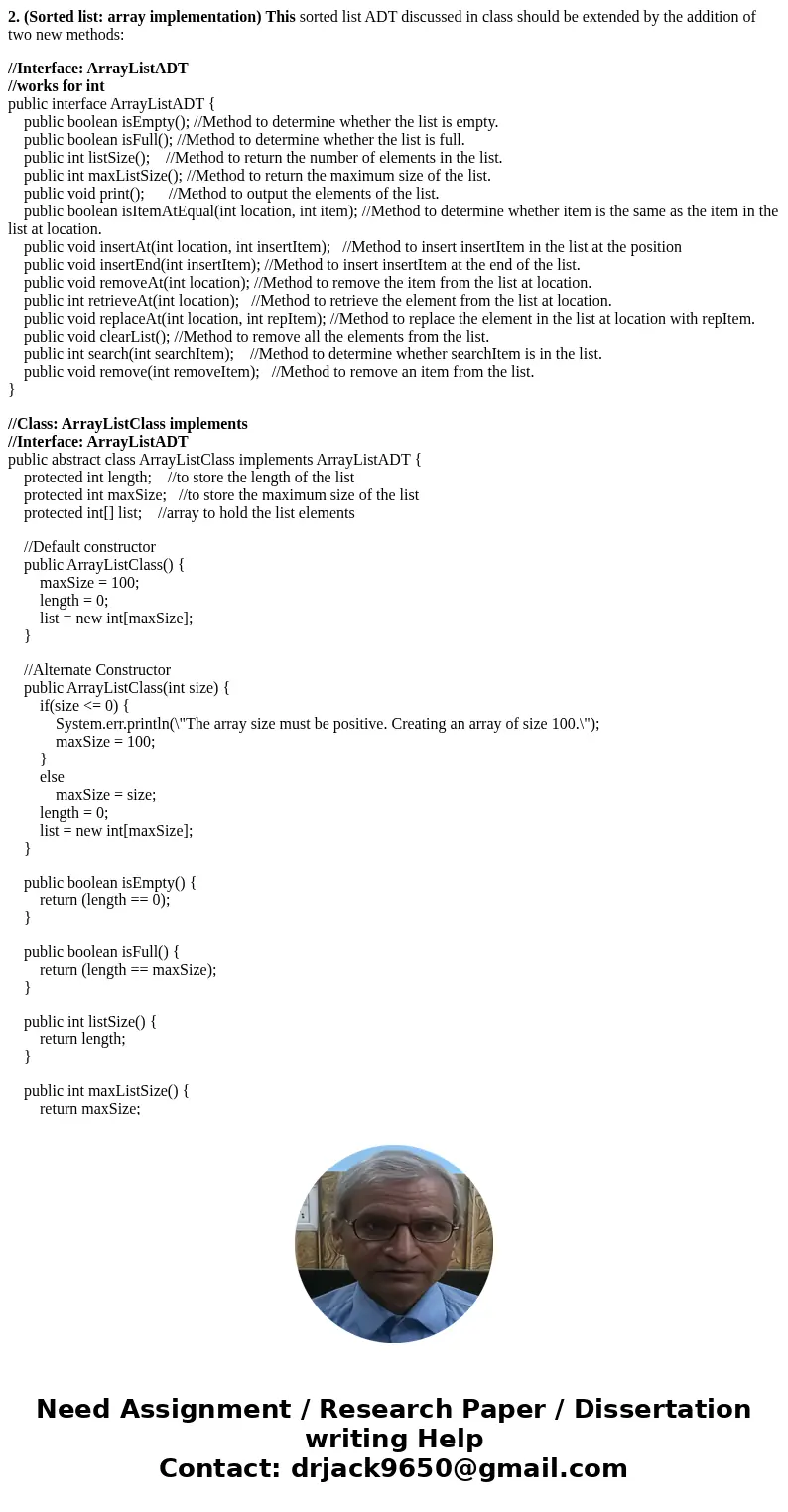
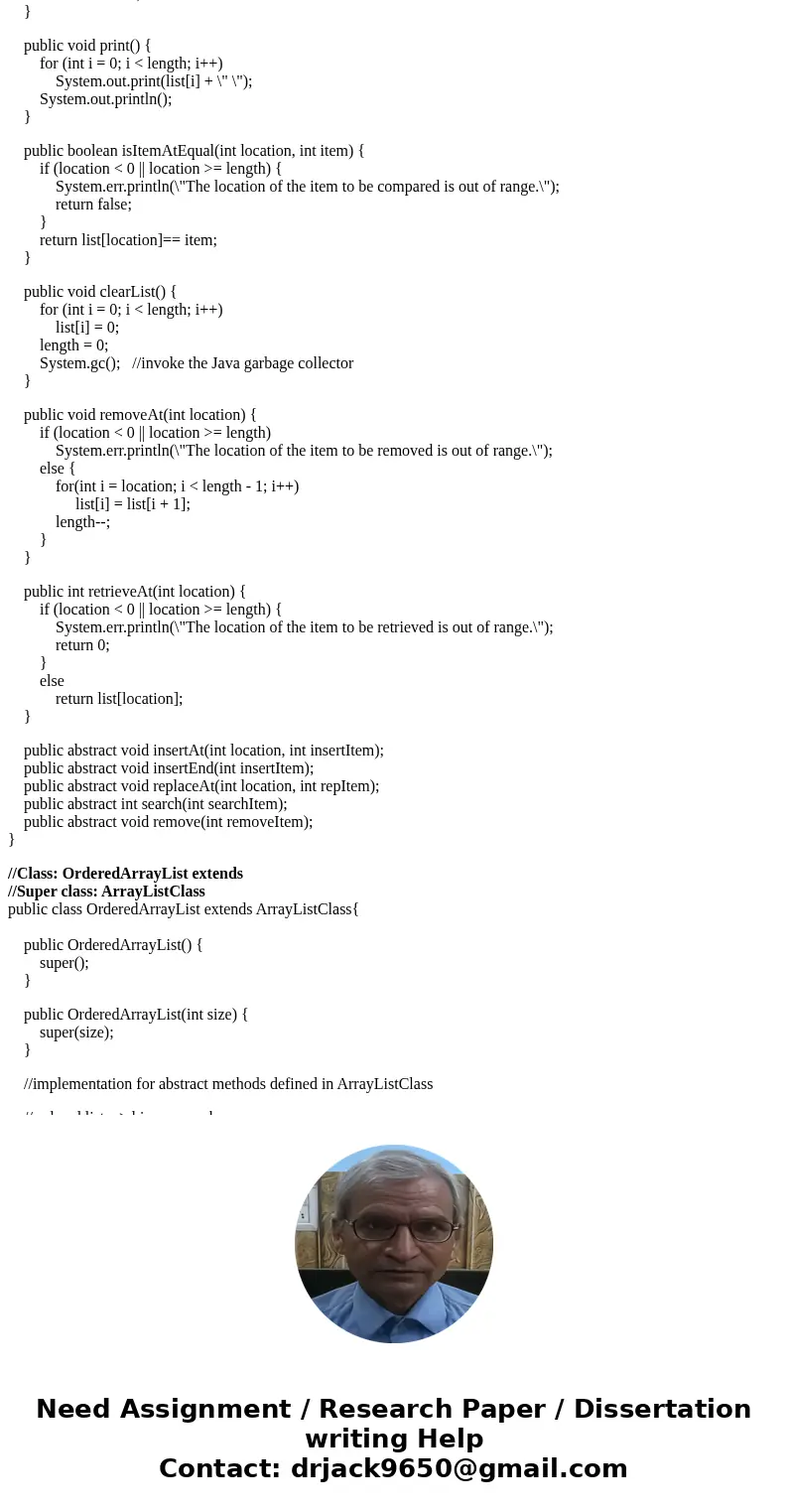
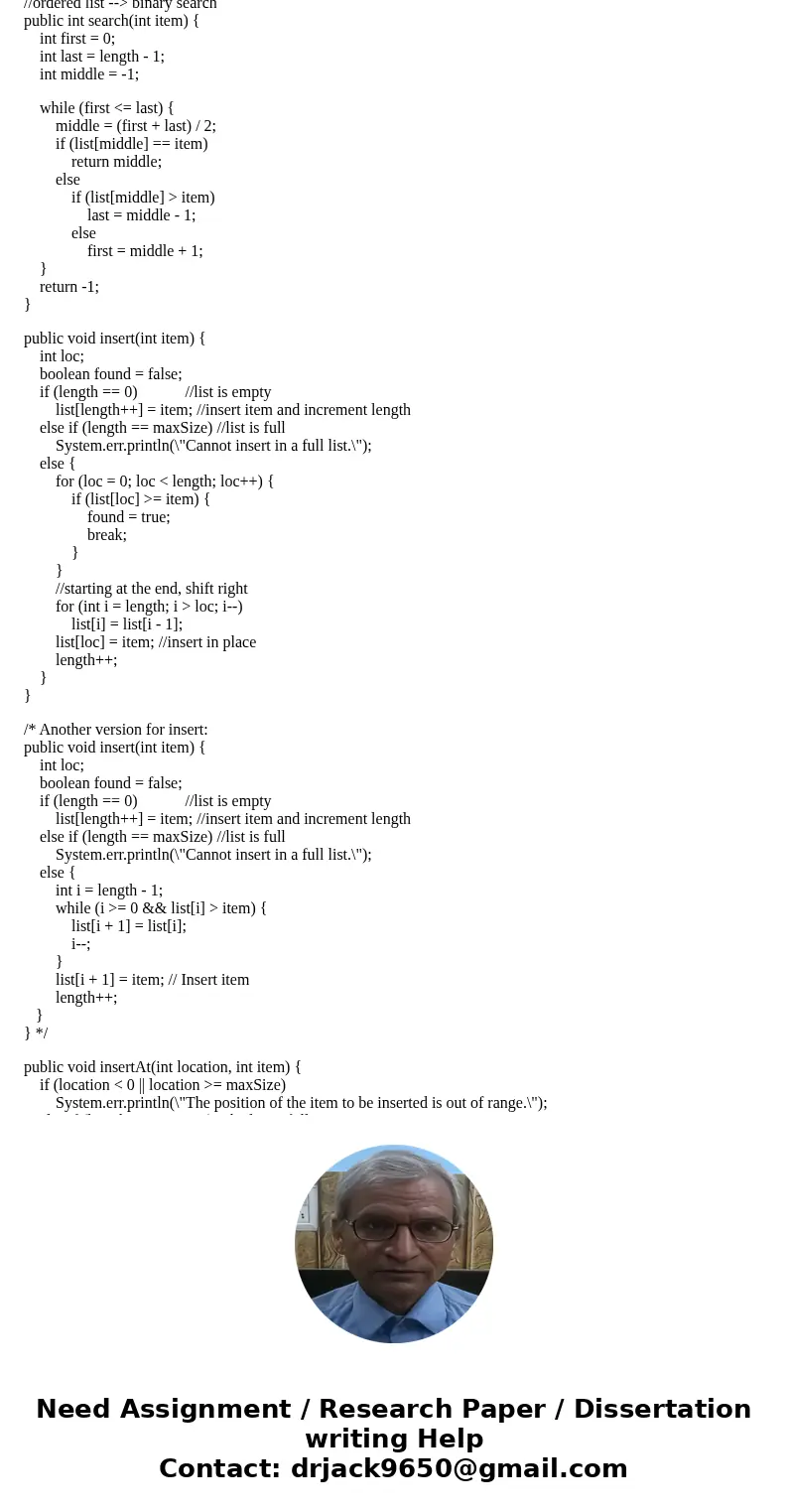
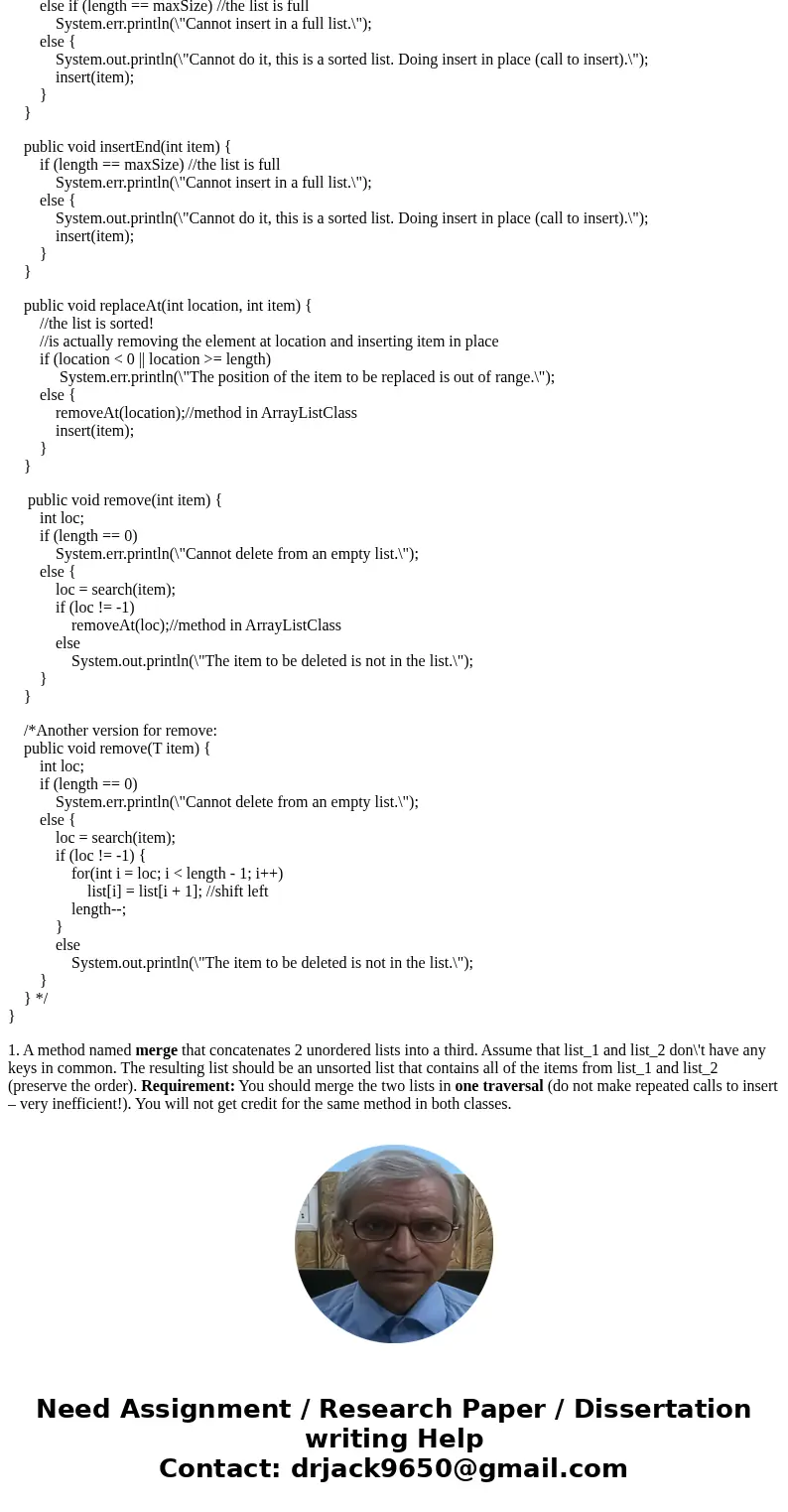
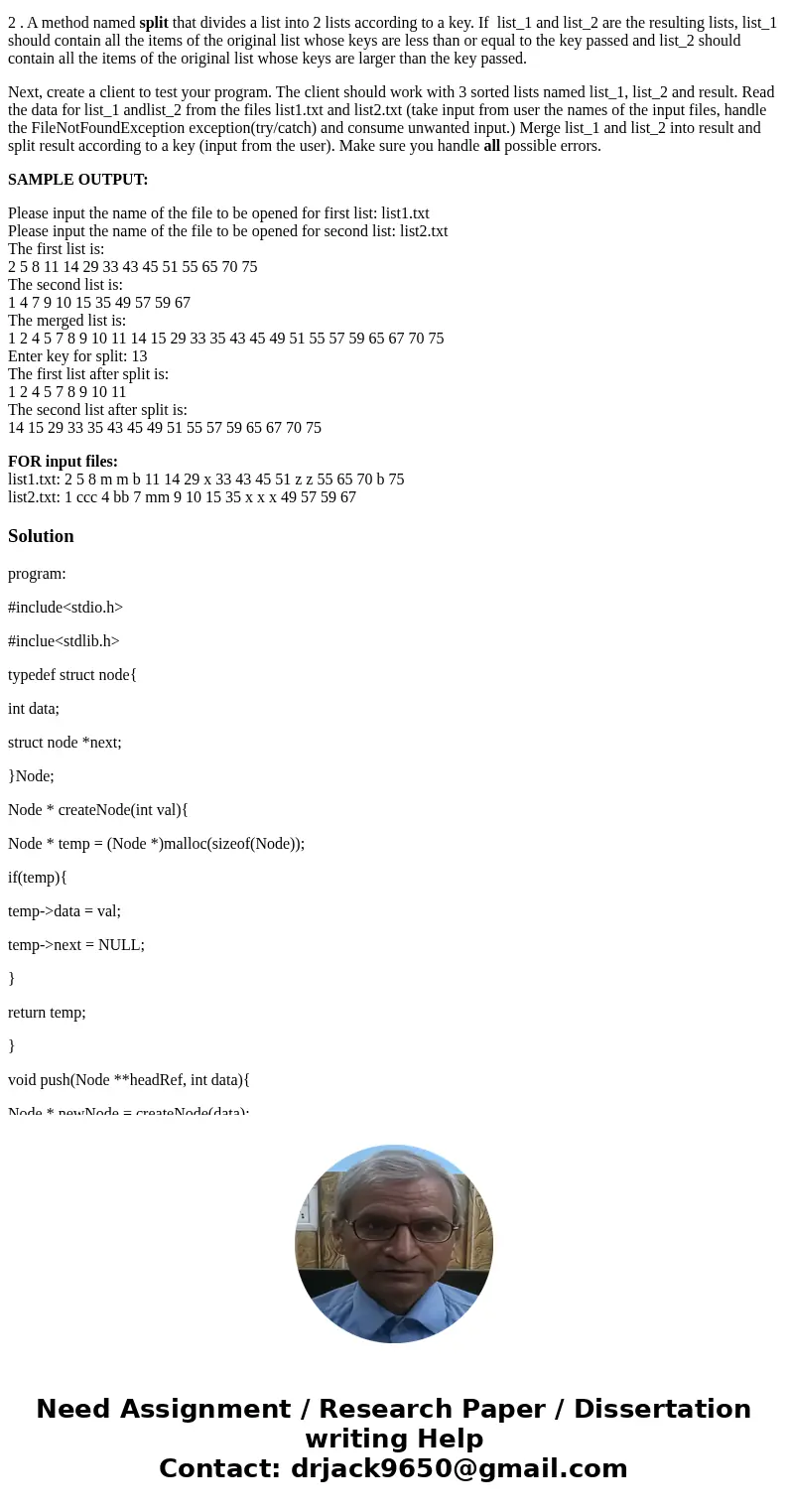
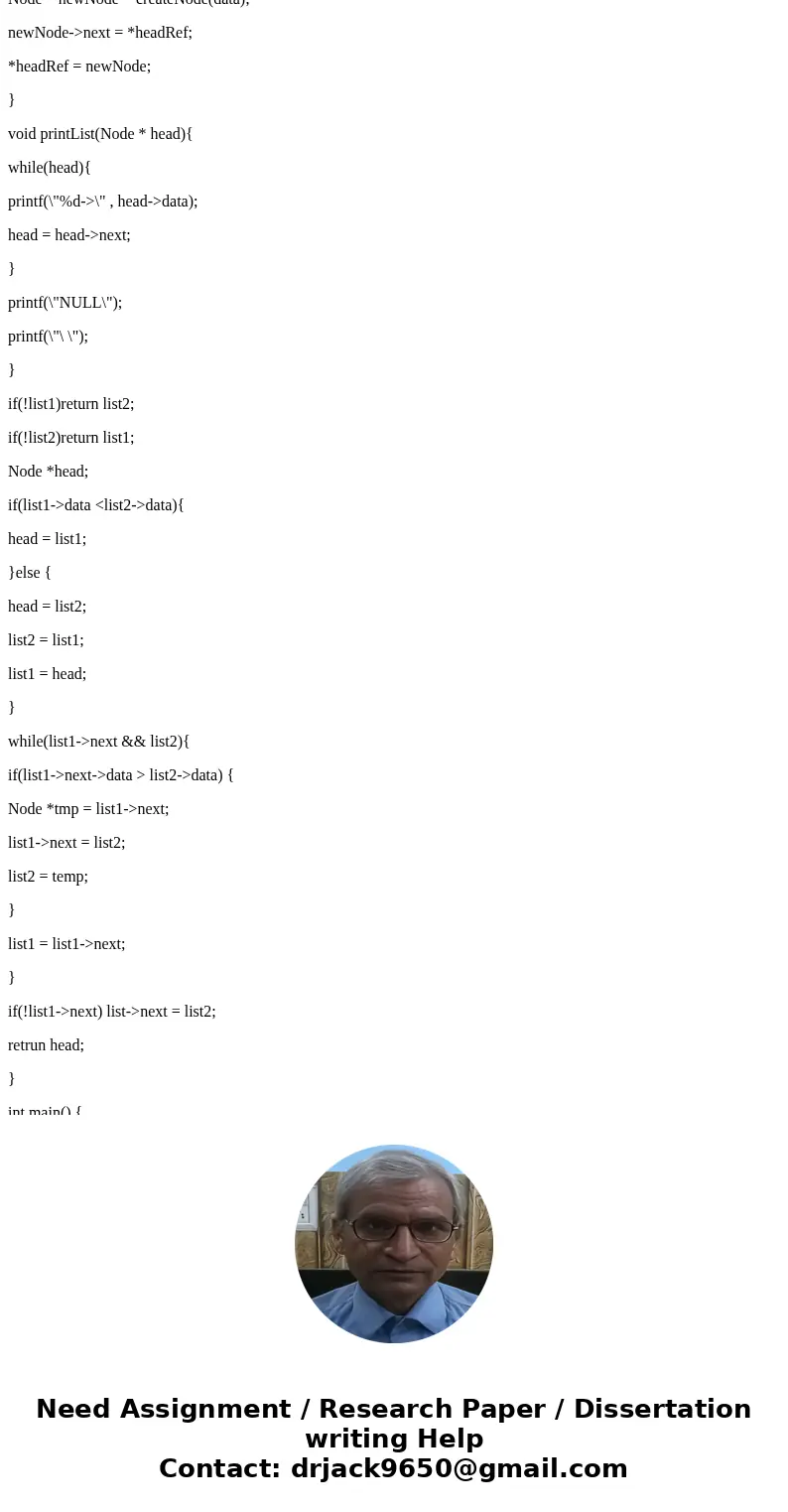
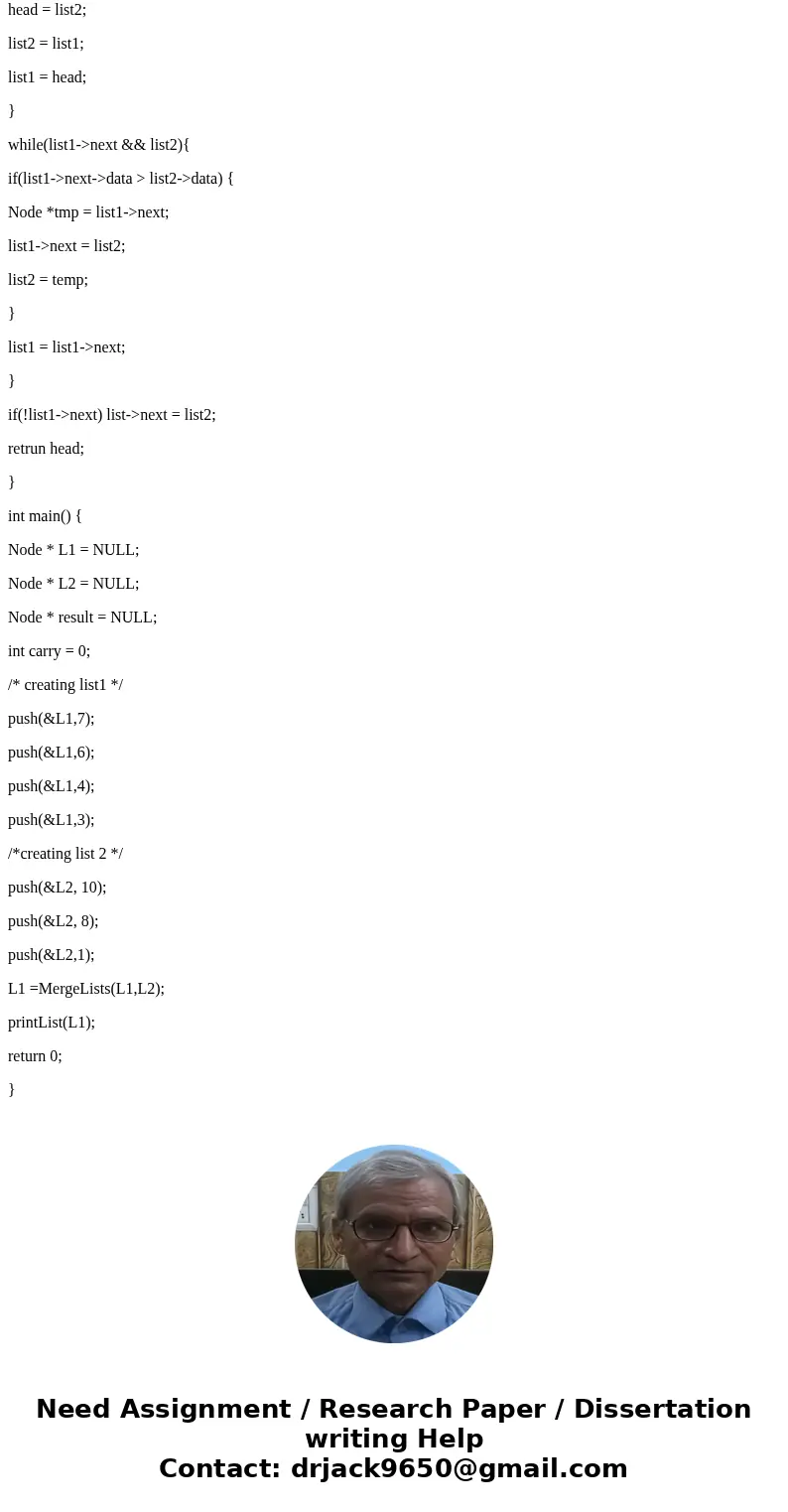
 Homework Sourse
Homework Sourse